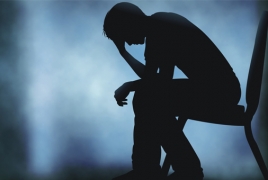Deep brain stimulation could help treat severe depression October 4, 2019 - 17:06 AMT PanARMENIAN.Net - A study to be published online on Friday, October 4, 2019, in the American Journal of Psychiatry found that deep brain stimulation (DBS) of an area in the brain called the subcallosal cingulate (SCC) provides a robust antidepressant effect that is sustained over a long period of time in patients with treatment-resistant depression—the most severely depressed patients who have not responded to other treatments, SciTechDaily says. The long-term data presented in this study, conducted at Emory University and led by Helen S. Mayberg, MD, now Professor of Neurology, Neurosurgery, Psychiatry, and Neuroscience, and Founding Director of the Nash Family Center for Advanced Circuit Therapeutics at the Icahn School of Medicine at Mount Sinai, validates earlier work conducted by the research team and lays the foundation for additional studies to refine and optimize DBS for these patients. Deep brain stimulation, currently approved by the U.S. Food and Drug Administration to treat essential tremor, Parkinson’s disease, epilepsy, and obsessive-compulsive disorder, is a neurosurgical procedure involving the placement of a neurostimulator (sometimes referred to as a “brain pacemaker”), which sends high-frequency electrical impulses through implanted electrodes deep in the brain to specific brain areas responsible for the symptoms of each disorder. Dr. Mayberg led the first trial of DBS of the subcallosal cingulate white matter, known as Brodmann Area 25, for treatment-resistant depression patients in 2005, demonstrating that it could have clinical benefit. Subsequent small open-label trials produced similarly favorable results, yet despite these encouraging open-label results, a multi-center, randomized trial was halted early due to a lack of statistically significant antidepressant response at the designated, six-month a priori time point. “Despite the fact that larger trials were halted early, what my colleagues and I were seeing as we continued to follow patients from our initial trials was that over time, they were getting better and not only that, they were staying better. So we stayed the course,” says Dr. Mayberg. “Over eight years of observation, most of our study participants experienced an antidepressant response to the deep brain stimulation of Area 25 that was robust and sustained. Given that patients with treatment-resistant depression are highly susceptible to recurrent depressive episodes, the ability of DBS to support long-term maintenance of an antidepressant response and prevention of relapse is a treatment advance that can mean the difference between getting on with your life or always looking over your shoulder for your next debilitating depressive episode.” Authorities said a total of 192 Azerbaijani troops were killed and 511 were wounded during Azerbaijan’s offensive. In 2023, the Azerbaijani government will increase the country’s defense budget by more than 1.1 billion manats ($650 million). The bill, published on Monday, is designed to "eliminate the shortcomings of an unreasonably broad interpretation of the key concept of "compatriot". The earthquake caused a temporary blackout, damaged many buildings and closed a number of rural roads. Partner news |